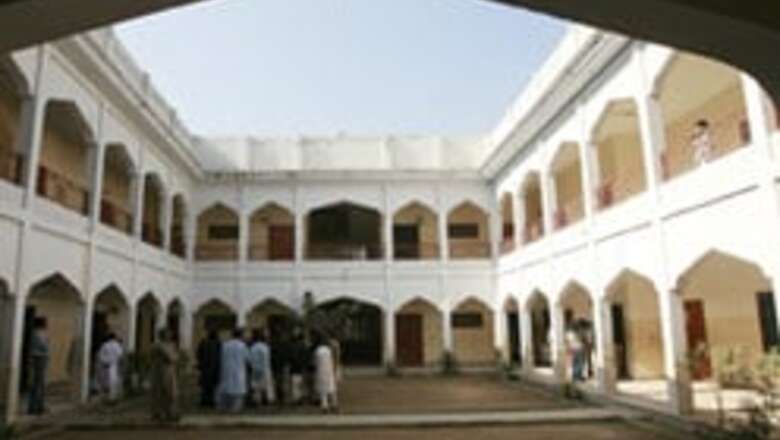
views
Islamabad: Pakistan is yet to formally ban the Jamat-ud-Dawa (JuD), which the UN Security Council has labelled as a terrorist organization in the wake of the Mumbai terror attacks, even as more than 100 of its offices around the country have been sealed and over 50 of its leaders have been arrested.
Eleven JuD operatives, including its chief Hafeez Saeed, had been placed on the Exit Control List, which means they cannot leave the country.
Holding that the JuD, which describes itself as a charity, is a front for the Lashkar-e-Toiba (LeT) terror group, the UN Security Council Wednesday acted on a request from India and the US and proscribed the organization.
New Delhi has blamed the LeT for the November 26-29 Mumbai terror attacks and the December 13, 2001 attack on the Indian Parliament.
"There is no need to issue any such notification against the organisation once it is banned by the UN," Dawn Sunday quoted a senior interior ministry official as saying.
Pakistan, he said, had not banned the JuD, but being a signatory to the UN charter, was obligated to implement the decisions of the world body.
In this context, he claimed that two other charities - Al-Rasheed Trust and Al-Akhtar Trust - had previously been banned under article 1,267 of the UN charter.
"In that case too, no notification was issued by the government to further proscribe the two trusts," the official said.
Speaking about the operations against the JuD, the official said so far 109 of its offices had been sealed across the country and in Pakistan-occupied Kashmir.
Meanwhile, legal experts pointed out that since the arrested JuD leaders were only being held in preventive detention they could take recourse to the law and could even be released.
"Preventive detention meant confinement of a person to stop him from committing an offence while at the time of detention there was no proof that he had committed a crime," The News quoted a constitutional expert as saying.
This meant that those held had the right to move the courts against their detentions, he added.
Article 10 of the Constitution that deals with preventive detention provides for review boards at the federal and provincial levels to examine such cases. Under Clause 5 of the article, the authority issuing the preventive detention order has to provide the reasons for this to the concerned individual within 15 days of his being held.
Clause 4 says that no law providing for preventive detention shall be made except to deal with persons acting in a manner prejudicial to the integrity, security or defence of Pakistan or for a period exceeding three months.
The only exception is if a review board, after hearing the concerned individual and the government, finds that grounds for detention exist, the expert pointed out.
Even in this case, an individual can be held for a maximum of eight months for acting in a manner prejudicial to pubic order and for 12 months in any other case, the expert added.


















Comments
0 comment